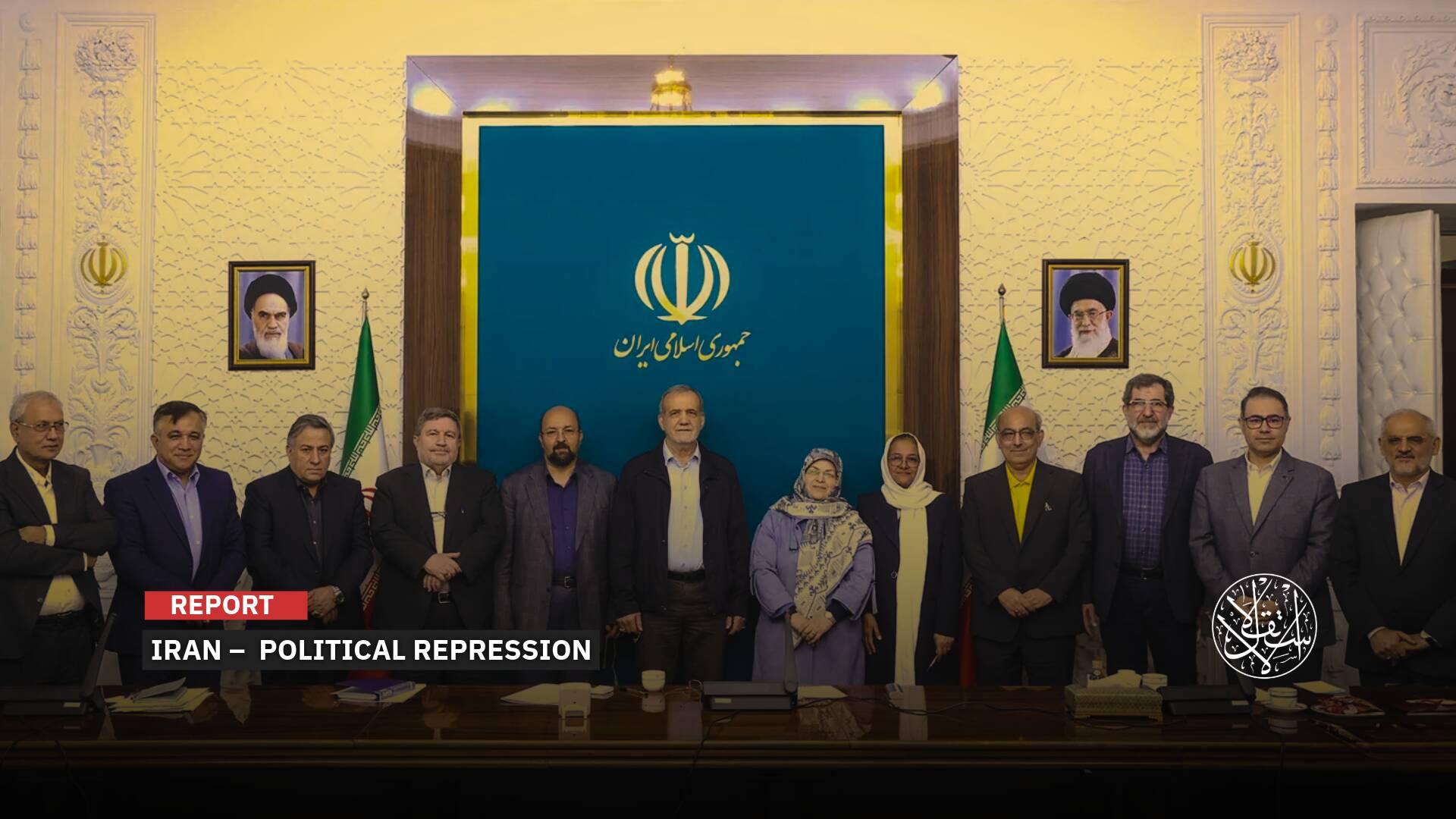Weizmann Institute: How Iran Struck 'Israel's' Nuclear and Tech Brain

“The Weizmann Institute is ranked among the world's top ten research institutions.”
The open confrontation between Iran and “Israel” continues for the seventh consecutive day, with mutual missile attacks continuing at an unprecedented escalation, amid the absence of any signs of an imminent ceasefire or political settlement on the horizon.
Iran recently launched several missile and drone attacks toward “Israel”, targeting military and vital sites.
This came hours after it warned Israelis to leave the occupied Palestinian territories, saying that “this land will not be habitable in the future.”
In turn, “Israel” also launched new attacks targeting the Iranian capital, Tehran, and other cities.
Hebrew media outlets described it as the most extensive airstrike since the start of the current round of escalation, following Army Minister "Israel" Katz's threat to burn Tehran.
The exchange of strikes between the two sides is no longer merely a political message, a show of force, or an initiative to restore political prestige. Rather, it has become a direct target of the nerves of both sides' infrastructure.
Nuclear Brain
In a qualitative development that reflects a strategic shift in the rules of clash, an Iranian missile strike at dawn on June 15 targeted the Weizmann Institute of Science in Rehovot, a site completely blocked by “Israel” from Google Maps.
This level of secrecy goes beyond the sites of strategic institutions, such as the Israeli Army Ministry complex and the Mossad headquarters in “Tel Aviv,” or the oil refineries in Haifa.
Despite being surrounded by defensive missile systems and receiving special care from the Israeli army, the Iranian missile was able to evade them and hit the site.
The strike, documented in video clips circulating on social media, showed massive fires breaking out inside one of the institute's buildings, causing extensive damage to its laboratories and infrastructure.
According to estimates, the value of the Weizmann building that was hit ranges between $50 million and $100 million.
The Weizmann Institute is ranked among the world's top ten research institutions, making significant contributions to the fields of artificial intelligence, nuclear physics, and nanobiotechnology.
Founded more than eight decades ago, the institute is a key pillar in developing “Israel's” military and scientific superiority, and contributes directly to research projects related to the security and military establishment.
The center is a vital pillar of Israeli national security and is described as "Israel's" nuclear brain and tech backbone, having served as the first incubator for its nuclear program.
The institute's role in building "Israel's" nuclear program dates back to its early years, specifically in 1958.
It is associated with the nuclear research center located near Dimona in the Negev Desert.
Israeli scientist Ernst David Bergmann, known as the father of "Israel's" nuclear program, utilized the research infrastructure and human resources at the Weizmann Institute to launch and develop the country’s nuclear program.
He played an active and tangible role in building and developing "Israel's" nuclear program, cooperating with other countries in the field of nuclear technology.
The institute constitutes a direct scientific pillar in the Israeli defense industries. The Ministry of Army employs the results of its research in artificial intelligence to analyze the battlefield, develop drones, jamming systems, alternative navigation, and autonomous weapons, as well as support military satellite systems.
It also contributes to securing military codes and hacking into adversaries' systems. It also contributes to the development of medical treatments for soldiers on the battlefield, making it one of "Israel's" most important strategic infrastructure institutions.
Cooperation Military
The institute maintains special relations with the Israeli Ministries of Defense and Defense, as do other Israeli universities.
The Katzir program, launched in 1991 and funded by the Ministry of Army, is one of the most prominent examples of cooperation between the institute and the government.
It attracts distinguished scientists to work in defense research and development to prepare a new generation of leaders in the tech security sector.
It also cooperates extensively with major Israeli arms manufacturers, particularly Elbit Systems and Israel Aerospace Industries (IAI).
On January 26, 2022, the institute stated on its website: “An important step has been taken in the cooperation between the Weizmann Institute of Science and Elbit Systems.”
Regarding the cooperation, it added: “Together, we are developing pioneering bio-inspired materials for defense applications, and we will build a promising future by combining industrial expertise and academic research.”
In this context, the Palestinian Campaign for the Academic and Cultural Boycott of Israel (PACBI) said in a statement on September 21, 2020: “The Weizmann Institute has historically been known for its collaboration with Israeli military industries.”
“The institute has hosted the military companies Rafael and Elbit Systems in its Science and Technology Park, and the institute's marketing company, YEDA, facilitates its cooperation with government agencies such as the Ministry of Army,” it added.
Regarding its relationship, it confirmed that the institute runs a master's program designed to help soldiers in the Israeli army balance their military service with their academic activities.
There are figures who hold senior positions in the fields of security, espionage, and military affairs on the institute's board of directors.
Despite all the revelations, the institute has not issued any comment over the past years regarding its relationship with the Israeli army, in light of the accusations linking it to the Israeli nuclear project.
Global Support
The Weizmann Institute's roots date back to 1934, when it was founded by well-known chemist Chaim Weizmann under the name ‘Daniel Seif Research’, before it was renamed in 1949 after its founder, who later became the first president of “Israel”.
The British scientist Weizmann also served as president of the World Zionist Organization between 1920 and 1946.
Regarding its founder, the institute's biography states: “Weizmann was a renowned chemist and ardent Zionist, and during his lifetime he witnessed the realization of his vision of establishing a Jewish state in the Land of Israel.”
“In partnership with others, Weizmann founded the Hebrew University of Jerusalem in 1925 and the Weizmann Institute of Science,” according to the same source.
The first computer in “Israel” was also designed at the Weizmann Institute in 1954, laying the foundations for the country's thriving computer industry.
The institute conducts research in a variety of fields, including chemicals, precision industries, medical devices, and genetics.
Since its founding, the institute has registered nearly 2,000 patents, most notably the invention of the drug Copaxone for the treatment of multiple sclerosis in 1997, as well as the development of the world's first biological computer in 2004.
It has also been associated with six Nobel Prizes and three Turing Awards, and attracts approximately 3,800 scientists and graduate students from 40 countries.
The Weizmann Institute receives significant funding from Jewish communities, Zionist organizations, and international scientific associations, reflecting the global nature of its support network, in addition to direct government support.
Its annual budget is $600 million, a quarter of which is paid by the government. It also has an investment portfolio of $2.7 billion, with revenues from its inventions accounting for approximately half of its budget.
The institute has transformed its discoveries into more than 120 startups and global pharmaceutical products, with cumulative sales estimated at more than $23 billion by 2024.

New Equation
The recent attack on the institute has opened the door to Key questions being raised about the nature of the Israeli response and whether Tel Aviv will resort to further escalation inside Iran.
Parallel questions have also been raised about the position of Western allies, particularly given that the institute plays a role in joint research with European and American scientific and security centers, making it part of a complex international network.
The institute maintains extensive partnerships around the world, most notably with the Massachusetts Institute of Technology (MIT), Stanford University, and the German Max Planck Institute.
Although the institute works for Israeli arms manufacturers, Prime Minister Benjamin Netanyahu views it as a curse.
Since the beginning of the war on Gaza, the institute has held a weekly demonstration every Saturday evening to protest government policies.
Its scientists demand an end to the war and a deal with Hamas that guarantees the release of the Israeli hostages.

Researcher Dr. Mahmoud al-Najjar explained to Al-Estiklal that “Tehran's targeting of the Weizmann Institute of Science reflects a decision by the Iranian leadership to target Israeli scientific research centers in retaliation for the assassination of its nuclear scientists.”
“In addition, the Iranian targeting of the so-called Israel’s nuclear and tech brain is an attempt to reimpose a new equation in response to the Israeli targeting of Iranian nuclear facilities in Natanz and Isfahan,” he said.
He also pointed out that “the Iranian attack is not only considered a conventional military response, but also carries a clear message that the centers of Zionist power are no longer beyond attack, including the brains that manufacture technology, weapons and hegemony.”










